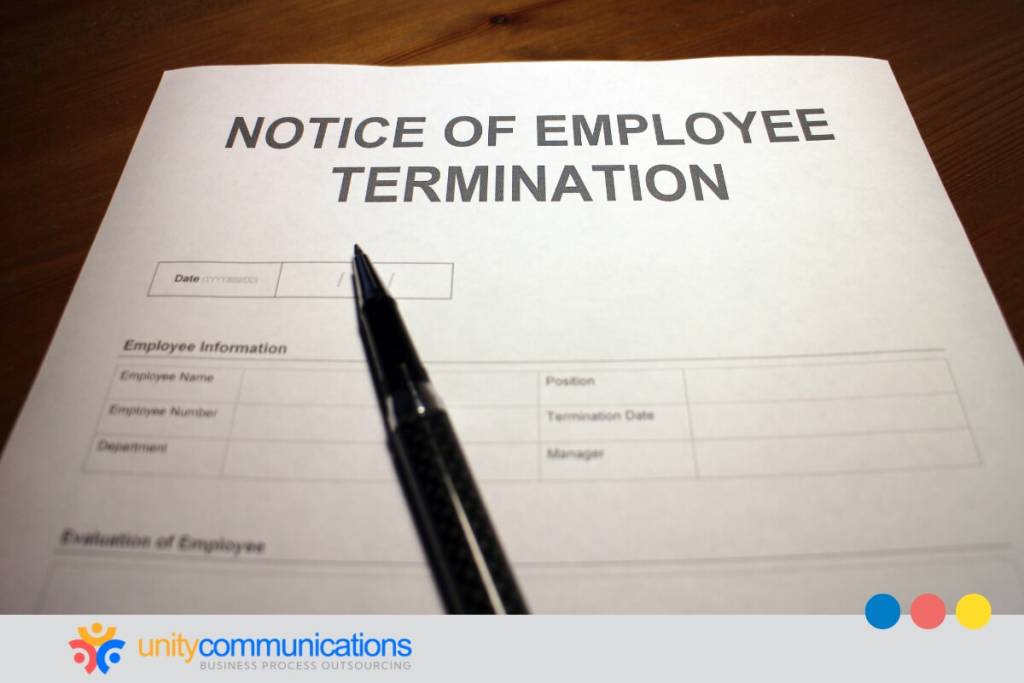Table of Contents
Desktop support outsourcing is hiring a third-party service provider to manage your information technology (IT) processes. A business process outsourcing (BPO) company or managed service provider (MSP) installs, maintains, repairs, and monitors the computer systems that your customers or users use.
Besides desktop computers, IT support outsourcing also covers laptops and tablets used in the workplace. Resolving software-related issues is another area covered by this type of outsourcing.
But why should you outsource some, if not all, of your desktop support activities?
Keep reading until the end to discover the answers.
Reasons Desktop Support Outsourcing Is Effective
Desktop support outsourcing has gained popularity since the pandemic, with 55% of large companies delegating some of their technical tasks to BPO companies in 2021.
Below is a list of reasons this service benefits your organization.
Competent Team for Higher Performance and Output
An outsourced IT provider supplies you with a desktop support team of agents, technicians, developers, and supervisors. The team addresses hardware, software, and network issues, from troubleshooting and installing components to developing programs and handling IT systems.
These IT professionals also respond to questions and requests from users and customers. They answer calls and interact with customers who need assistance through messaging platforms.
An outsourced desktop support team includes members proficient in popular operating systems such as Linux, Mac, and Windows. Creativity, organizational skills, analytical skills, active listening, and collaboration are vital soft and hard skills that ensure team members are efficient and productive.
They also have IT-related degrees or past technical job experience. Some of them have obtained accreditations and certifications from educational institutions or well-known organizations. Certified Information System Security Professional, Microsoft Certified IT Professional, and Computing Technology Industry Association (CompTIA) A+ certification are examples of such credentials.
Multilayered Technical Team for Methodical Approach
Desktop support outsourcing provides tier-based technical support for highly systematic service delivery. The following are the five levels of technical support:
- Tier 0 (T0) support. Customers or users resolve desktop problems themselves with the available helpful resources such as frequently asked questions (FAQs) and video tutorials. These materials are accessible on your company website.
- Tier 1 (T1) support. At this level, technical support agents use basic IT knowledge and tools to resolve the bulk of technical issues (e.g., password recovery and app reinstallation).
- Tier 2 (T2) support. Specialists at this level solve the remaining IT problems T1 agents cannot handle.
- Tier 3 (T3) support. A T3 team solves the most difficult technical issues. T3 specialists develop new solutions and share them with T1 and T2 agents.
- Tier 4 (T4) support. A third-party vendor provides this technical support. It replaces parts or whole products and services when an issue is beyond resolution.
Vendor Negotiation Skills To Get the Best Product or Service Terms
Transacting with third-party vendors is less challenging when you outsource tech solutions. A desktop support team can help you select suppliers, review contracts, negotiate prices (including discounts and payment terms), and monitor the virtual or physical distribution of purchased products and services.
The team helps you acquire the best service from vendors at the most affordable rate. It also evaluates and mitigates the risk of doing business with select vendors. These risks include the dependability, durability, or security of the products or services you want. Additionally, the team can identify cybersecurity flaws and glitches in IT systems.
You want a long, productive relationship with vendors to maintain smooth business operations. An outsourced desktop support team makes this possible; it will cautiously and economically work with other suppliers on your behalf.
Reduced Operating Costs for Your Company’s Better Bottom Line
Outsourcing desktop support significantly reduces a company’s operating expenses in these areas:
- Salary and compensation. You regularly pay in-house IT support staff, irrespective of business conditions. Non-monetary benefits, such as vacation leaves and insurance, are legally mandated.
- Recruitment. Employing more technical support personnel raises your budget. You perform all the recruitment processes, from job advertising and candidate screening to training new hires.
- Workspace and equipment. Extra work areas, equipment, and office supplies for an in-house support team require additional funding.
- Training. A desktop support team must take re-training and upskilling programs to update and advance their knowledge and competencies. Such activities involve financial costs.
Varied Pricing Models To Optimize Costs
Outsourced IT solutions offer different pricing models. How much you should pay at a given time is based on the BPO company’s location and reputation. Workload volume also factors into your total costs.
Consider the following pricing schemes for your outsourced IT processes:
- Per-user flat fee – based on the number of users
- Per-device flat cost – determined by the number of devices
- Ad hoc fee – per-project payment basis with no fixed fees
- Transaction-based – based on the number of transactions
- Cost-plus – fixed cost regardless of task volume
- Maintenance cost – charge for your IT system’s upkeep
- One-off cost – large one-time payment for a major IT project
Extensive Reach for Wider Service
Another advantage of outsourcing is that your desktop support team can provide day-and-night support across different channels. Users and customers can contact the team even on weekends and holidays. Moreover, wider service coverage allows you to expand.
A third-party vendor can provide seamless and continuous customer support through social media, online communities, live chat, email, and mobile platforms. An outsourced desktop support team is ready to respond to consumers on a larger scale.
Uninterrupted technical support and fast resolution improve user experience and lead to stronger customer loyalty and higher retention. Satisfied consumers buy more or make repeat purchases. They keep supporting your products and services as long as they have high confidence in your business. Loyal buyers are also likely to promote your products to others.
Latest Technologies at Your Fingertips
Outsourced desktop support is a back-office outsourcing service and an important business strategy. It enables you to access new technologies, systems, and applications to streamline workflow.
A technical support team uses desktop support software and tools to handle user and customer demands. These computer programs check and record each agent’s output and performance. They also reduce errors, control the inflow of calls, and offer users self-service options.
Moreover, desktop support applications can deal with many requests or tickets. Along with knowledge base features, the tools help IT support personnel correctly answer and address technical queries and concerns. In addition, these applications have collaborative and customer-focused functions.
BPO firms use cloud-based technologies that can integrate applications to drive productivity and efficiency, thus taking service quality to new levels.
Scalable Operations To Better Manage Expenses
With scalability, a BPO provider can increase or reduce your desktop support tasks based on current and expected business conditions. This way, you can better manage your financial costs.
A third-party vendor provides the exact number of desktop support team members to maximize resources. If your work volumes are higher than usual, simply inform the vendor that you need extra muscle, and it will scale up operations. If your task quantity is low, which reduces your revenue, the provider can scale down the processes to decrease expenses.
Scalability is challenging, if not impossible, to achieve when operating an in-house IT support team. Whether the business is bustling or sluggish, you must pay each team member salary and compensation. Otherwise, you might need to lay off employees if your situation worsens.
Foremost Priority on Core Business To Improve Revenue
Back-office outsourcing services, such as desktop support and customer service, free your employees from tedious and time-consuming tasks. Back-end processes are vital for continued business operations. But they take your focus away from sales generation, product or service innovation, and high-value and critical activities.
Assigning your secondary processes to a BPO partner allows you to concentrate more on enhancing sales and revenue. With a higher income comes:
- Better service quality for enhanced customer experience
- Larger employee perks, bonuses, and incentives for greater morale
- Higher product and service quality to stay ahead of the competition
- Quicker market growth for more stability
- Large-scale technology acquisition and market competitiveness
- New and improved products and services to develop, promote, and sell
Better Customer Experience To Increase Brand Loyalty
Include desktop support outsourcing in your business strategy because it can take customer experience to new heights. Third-party teams are skilled at consistently meeting consumer needs and building steady relationships with those seeking support.
Consider the positive results of an enhanced customer or user experience:
- Better appreciation. Third-party agents are good at asking consumers questions and getting feedback and opinions.
- More availability. Customers can contact third-party specialists anytime and anywhere via different communication channels.
- Higher retention. IT support agents are competent in technical processes and customer service. They can earn consumer trust if they efficiently deliver services.
- Fewer worries. Outsourced desktop support representatives can immediately resolve issues. They can accurately answer questions and convincingly address concerns.
High Degree of Data Security Compliance To Avoid Legal Consequences
Service providers offering desktop support services observe federal and industry data security policies. They do not want clients to incur penalties or face lawsuits due to non-compliance. Monitoring outsourced IT trends is also necessary to stay updated on the latest industry developments.
Here are some laws and standards that service providers track:
- The Telemarketing and Consumer Fraud and Abuse Prevention Act requires telemarketing professionals to have a certification to limit potential malpractices to consumers.
- The General Data Protection Regulation (GDPR) is a European Union law protecting consumer data at a high level.
- The Payment Card Industry Data Security Standard (PCI DSS) is a security standard requiring all businesses to securely manage credit card transactions.
Quicker Response Time for Service Agility
IT support outsourcing expedites service delivery to improve revenue and consumer loyalty. A quick response period saves you time, money, and effort because the third-party team completes tasks in the shortest time possible. Third-party specialists are trained to be responsive and proactive.
Fast service delivery without sacrificing quality and precision leads to favorable outcomes such as the following:
- More output translates to more services offered to consumers.
- Agility significantly contributes to building or improving competitiveness. Users patronize businesses that provide the quickest and most accurate service.
- Users highly appreciate customer support agents who can immediately resolve their technical concerns or issues.
- Consumers are likely to share their excellent experiences with others by word of mouth or social media. They post comments about how swift and professional the support team is.
Available Remote or Hybrid Work Arrangement for Maximum Efficiency
Desktop support outsourcing enables technical support teams to practice social distancing and similar health protocols.
In a remote or hybrid work setup, a third-party team virtually checks users’ computer systems and devices. Physically going to the site to access devices is no longer necessary. Technicians can troubleshoot, diagnose, track, and resolve technical problems from a distant location via a secure online channel.
Remote IT technicians react faster than on-site specialists. This saves team members from engaging in essential but time-consuming activities such as commuting, scheduling appointments, or keeping in touch with clients on the go. A remote worker can immediately start working.
Combine your in-house IT team with a remote third-party team for maximum efficiency. Work-from-home specialists can assume other responsibilities when the in-house team is busy with tasks or cannot solve some technical issues.
Cost-effective but First-rate Service for Stronger Competitiveness
BPO companies offer multiple outsourcing services at attractive rates to outdo their industry competitors. Thousands of providers compete to grab a share of the market. This is one of the main reasons you can outsource data entry services, desktop support, bookkeeping, and customer service at affordable prices.
Many BPO providers established offshoring operations in Asian countries. These locations offer an educated, qualified, trainable, and cost-efficient local workforce.
With low labor costs and high-quality service, offshoring companies can offer clients competitive service rates. BPO firms with nearshoring or onshoring operations generally charge clients higher fees due to high wages.
The Bottom Line
Learning about the top reasons desktop support outsourcing works helps you learn how to use this business strategy in your organization.
Outsourced desktop support provides a competent and multitiered team skilled in vendor negotiations, customer communication, and fast service delivery. It also offers advanced technologies, flexible pricing plans, and scalable operations to optimize costs.
Despite these benefits, cautiously outsource your desktop support processes. Any business endeavor entails risks that are often difficult to measure and anticipate.
Contact a BPO provider such as Unity Communications to help you with your next steps.




